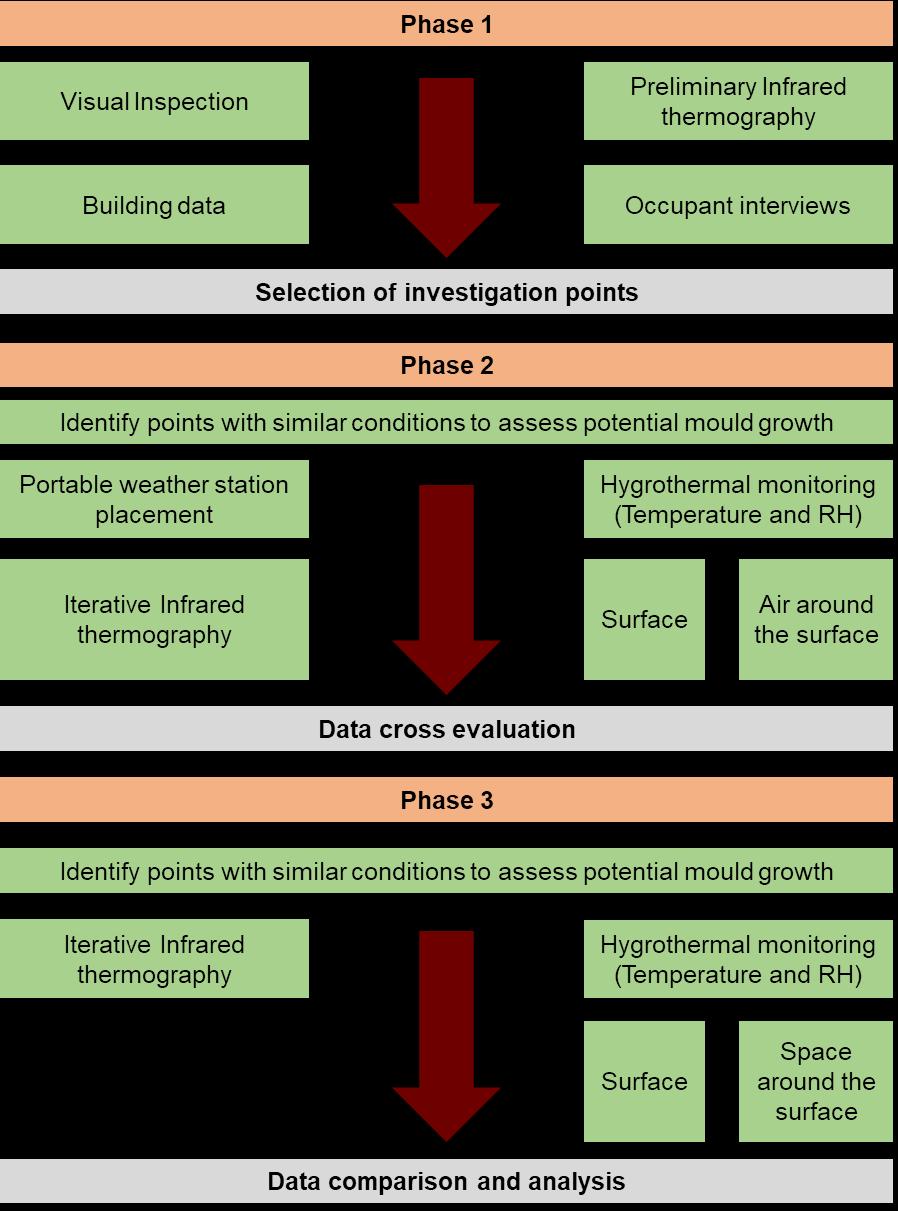
1 minute read
Figure 3. Seasonal void relative humidity and temperature at 4 different data points
Data analysis will be done in two parts.
6.1. Seasonal Analysis using lowest isopleth for moulds (LIM)
Advertisement
Isopleths are curves of relative humidity threshold as a function of the temperature. They describe the lowest condition for with significant mould growth risk and are specific to the type of mould spore (Pelsmakers, Vereecken, Airaksinen and Elwell, 2019). However, Sedlbauer (2002) developed LIM, below which no mould will grow. These isopleths also indicate critical temperature and RH threshold to initiate mould spore germination for a specified period.
In case of Pierhead building, a seasonal analysis of all data points can be assessed. LIM iIsopleths can be created for all data points to identify the ideal conditions for mould growth with respect to different times of the year. Figure 7 shows a similar comparative graph prepared by Sedlbauer (2002).
Figure 3. Seasonal void relative humidity and temperature for uninsulated floors at 4 different data points. (Source: Sedlbauer. 2002)
6.2. WUFI-Bio hygrothermal model to predict mould growth by computer simulation
Building performance evaluation guide (2021) suggests the use of moisture dynamic analysis. This technique incorporates a dynamic hygrothermal simulation tool to predict the way heat and moisture move through the building envelope. It can be used to assess the potential risk of moisture accumulation within any part of the envelope. WUFI simulation tool can be used to perform this analysis. It is performed by analysing data obtained from humidity and temperature measurements and material parameters. Figure 7 shows the output data from an 18-month WUFI simulation to quantitatively assess the moisture diffusion through the envelope.



